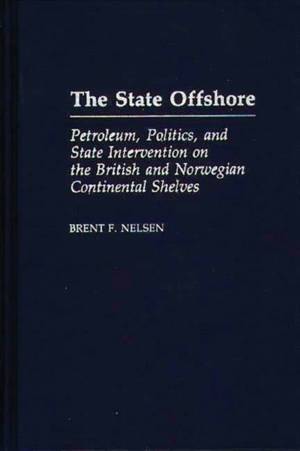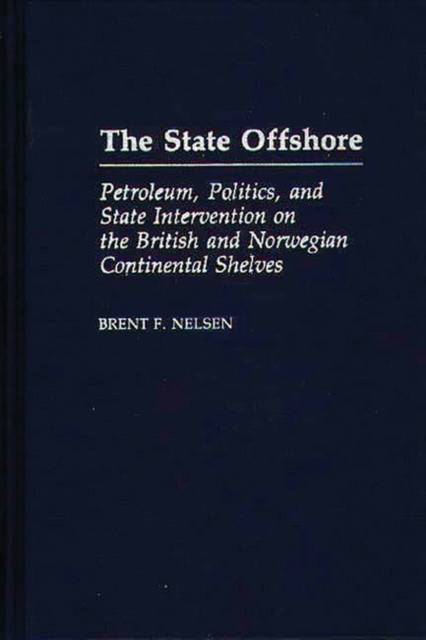
- Afhalen na 1 uur in een winkel met voorraad
- Gratis thuislevering in België vanaf € 30
- Ruim aanbod met 7 miljoen producten
- Afhalen na 1 uur in een winkel met voorraad
- Gratis thuislevering in België vanaf € 30
- Ruim aanbod met 7 miljoen producten
The State Offshore
Petroleum, Politics, and State Intervention on the British and Norwegian Continental Shelves
Brent F Nelsen, Brent NelsonOmschrijving
Governments have been involved in the exploration, development, production, and abandonment of offshore oil and gas since the early years of the century. With the 1965 discovery of oil and natural gas in the North Sea, both Great Britain and Norway faced the immense challenge of extracting an energy bonanza out of one hundred meters of water and two thousand meters of rock. In this book Brent Nelsen explains the factors behind state involvement in offshore petroleum activities. From his analysis of government workings in Great Britain and Norway he concludes that state intervention is determined by complex interactions among government officials, economic interests, and environmental pressures.
Nelsen shows how Britain and Norway have intervened in the offshore oil business: minimal intervention--whereby the state simply distributes offshore territory to private enterprise, and protects workers and the environment; regulatory intervention--in which the state oversees every aspect of petroleum development; and participatory intervention--in which the state actually enters the business as an entrepreneur. Both states used all three types of intervention at different times, and Nelsen explains how their actions varied, and why. He bases his conclusions on evidence gathered from interviews with politicians, ministry officials, corporate executives, and interest group leaders. This book will be of considerable interest to students of European politics, political economy, public policy, and energy politics.Specificaties
Betrokkenen
- Auteur(s):
- Uitgeverij:
Inhoud
- Aantal bladzijden:
- 272
- Taal:
- Engels
Eigenschappen
- Productcode (EAN):
- 9780275938352
- Verschijningsdatum:
- 25/06/1991
- Uitvoering:
- Hardcover
- Formaat:
- Genaaid
- Afmetingen:
- 161 mm x 241 mm
- Gewicht:
- 589 g

Alleen bij Standaard Boekhandel
Beoordelingen
We publiceren alleen reviews die voldoen aan de voorwaarden voor reviews. Bekijk onze voorwaarden voor reviews.











